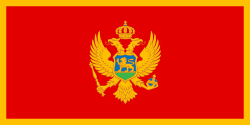Corruption in Montenegro describes the prevention and occurrence of corruption in Montenegro. In recent years, Montenegro has increased its efforts to implement preventive and legislative measures needed to curb corruption. For example, anti-bribery provisions in the Criminal Code, as well as laws on money laundering, conflict of interest, access to information, and political funding have all been strengthened. At the same time, awareness-raising activities and training of public officials in integrity standards have been intensified. [1]
Contents
However, corruption remains a serious problem in the country. The European Commission finds in its Progress Report 2013 that efficiency in the fight against corruption is constrained by frequent legislative changes and the lax attitude among law enforcement authorities to investigate corruption allegations, especially those involving high-level officials. [2]
